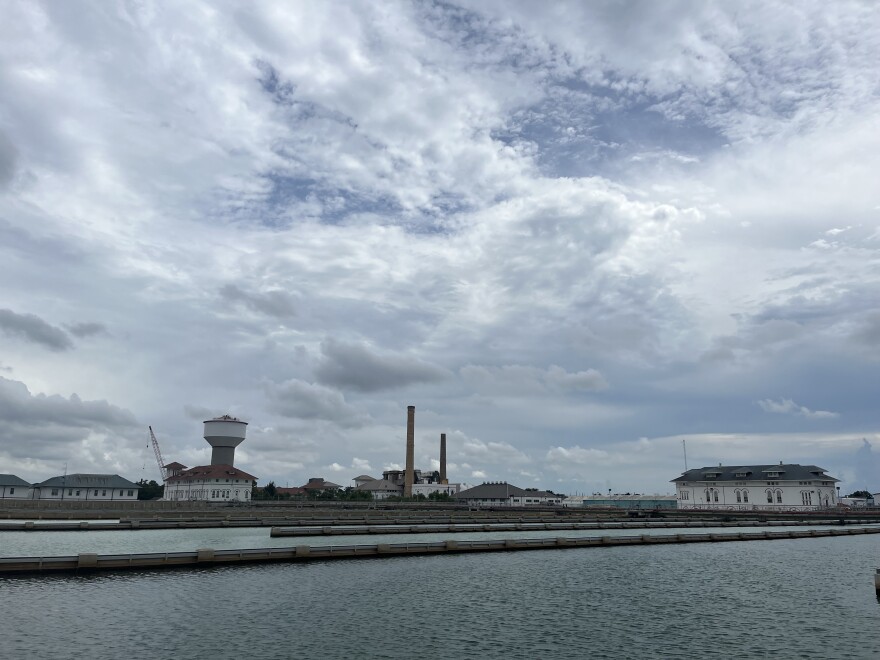As Louisiana enters the historic peak months for storms of what is still anticipated to be an “above normal” hurricane season, local, state and federal officials urged residents not to get complacent and to finalize their plans if a storm hits — even as many continue to recover from the record-breaking storms that have walloped south Louisiana over the last two years.
That included a visit on Tuesday from Alejandro Mayorkas, the U.S. Secretary for the Department of Homeland Security, the agency which oversees the Federal Emergency Management Agency, or FEMA. He toured New Orleans’ aging Carrollton Water Treatment Plant with Gov. John Bel Edwards and Mayor LaToya Cantrell before talking to the media about this year’s hurricane season, but stopped short of discussing concrete plans or funding to help Louisiana.
Cantrell said she’s confident that the Sewerage and Water Board is well prepared to handle storm impacts this hurricane season. But she emphasized that more work needs to be done to build out a new power supply complex on the site.
“We have a Sewerage and Water Board — in terms of our infrastructure — that is ailing,” she said.
But key future funding for the facility — which would go toward replacing outdated turbines that power drainage systems during storms, as well as drinking water — has been delayed by the Louisiana Bond Commission.
Attorney General Jeff Landry has led the effort to stall the funding, arguing that the city of New Orleans should not receive it because of the city’s defiant stance against the state’s abortion restrictions.
Edwards criticized Landry’s efforts and said he has confidence that the project will indeed move forward at the commission’s meeting next month.
“The idea that you should ever hold up such an important project, that deals with power generation, that deals with getting flood waters out of New Orleans, and making sure that we're able to have drinking water distributed through the city — that's just misguided,” Edwards said.
Looking beyond New Orleans, Edwards cautioned that Hurricanes Laura and Ida — two of the strongest storms to ever hit the state — “are an indication of what we can expect going forward” as climate change fuels more frequent and severe storms.
And he noted that recovery is very much still underway in southeast Louisiana, making many residents more vulnerable to potential hurricane impacts this year.
“We’re not in a very good place because a lot of people are still living in homes that have not been fully repaired,” he said.
Mayorkas acknowledged that housing has been a major issue across southeast Louisiana after the hurricanes of 2020 and 2021. From Lake Charles to Terrebonne Parish, many residents had waited months, and some are still waiting, to receive temporary housing from FEMA after their homes were destroyed.
Mayorkas said the agency is hopeful that new legislation will pass to broaden its powers related to housing assistance, though he did not provide further details. He said the agency has also convened working groups to determine “what we can do administratively to deliver relief more quickly.”
The tropics have been relatively quiet so far this year, with only three named storms cropping up, and none of the three systems impacted Louisiana. But August through October are typically when the Atlantic hurricane season is its most active. As of the Tuesday press conference, there were three disturbances reported in or near the Atlantic Ocean.





